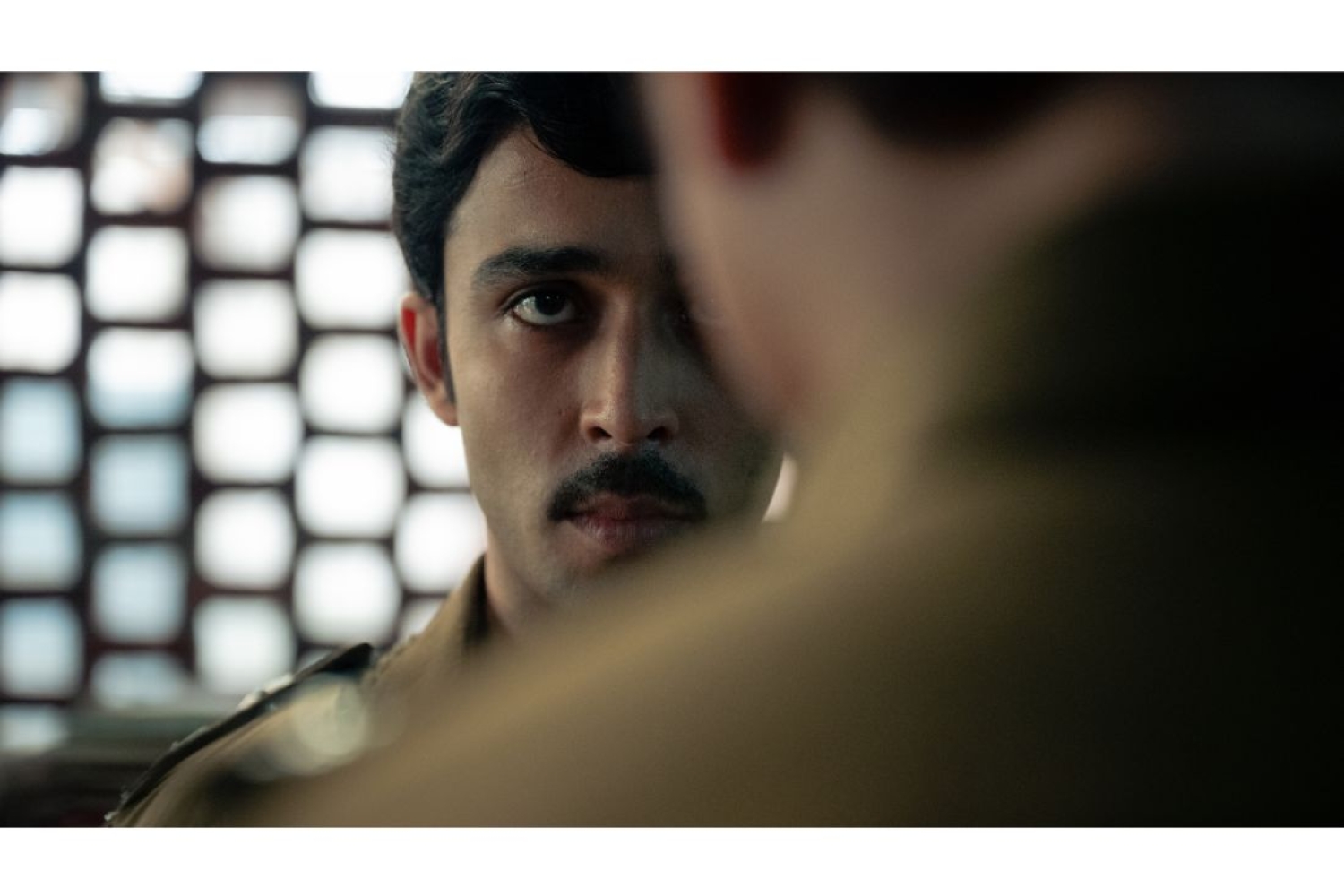

It’s not every day that we get to discuss an actor’s success story after just two credits, but Zahan Kapoor is giving us that opportunity. We knew he was a name to watch after the release of his debut film, Faraaz, directed by the respected Hansal Mehta. We kept a close eye on him and even reached out to learn more about his journey, as we sensed his breakthrough was on the horizon. With his role in the new Netflix crime drama Black Warrant, he makes his mark and announces that he is here to stay.
Black Warrant is an exceptionally well-made show directed by master filmmaker Vikramaditya Motwane and a talented team of co-creators. It has a dark, hauntingly sad tone, but it's also gripping, real, and nuanced. We binge-watched it in one long evening and woke up feeling shaken by how authentic it felt.
Zahan delivered a tremendous performance, showcasing a level of maturity on screen that is impressive for someone just starting their career. In our conversation with him, he expressed gratitude for the fantastic team he worked with and how the script became his bible. Exceprts below.
My first question is about your character, Sunil Gupta. I've noticed that he is so different from you in real life. His mannerisms, how he walks, talks, and behaves are the complete opposite of who you are. How did you manage to portray such a contrasting character?
I think it is a combination of a lot of things. I don't think it's just on me, but I'm very happy to hear a response like this. There's a lot of personal effort, of course, in terms of what I can try and do with the physical appearance and the physical manifestation of the character. There's support from Shruti Kapoor, who was the costume designer and helped design the physical look, including the hair and the moustache and obviously Vikram [Aditya Motwane]. A dialect coach also helped me pick up the nuances.
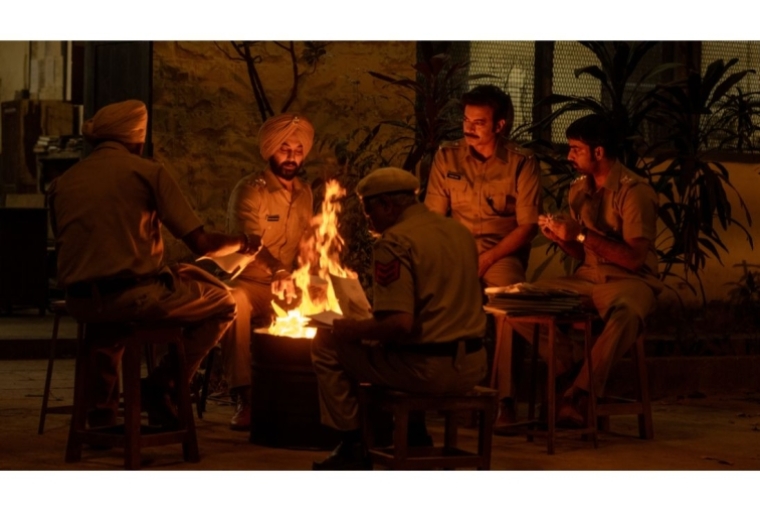
Your accent on the show deserves a special mention.
Thank you. It was very scary, to be honest. I was really scared about whether I would be able to do this. It was me pushing myself in a way that I hadn't done before. The volume of the role, the distance from myself, and the different time period all contributed to that fear.
However, you're supported by incredible professionals and co-actors, which makes it a lot more fun and enjoyable overall. Everyone is involved; while this is my second credit on screen, it represents a significant project for me as an actor, building on my stage experience. It's a cumulative experiential journey. Before this, I spent years trying to absorb everything quietly and own my experiences. So, it's a lot of things funneling into this one beautiful exploration.
When you were getting into the character, what came first?
Research first. Luckily, the book is available. So yes, that's the first source material: the Internet. There's a tremendous amount of interviews available online, including information on the real Sunil Kumar Gupta. I had a vague reference point of where I am and the direction I want to go in. More interviews online and journalism around the subject matter served as great resources and sources of inspiration. Then we focus on the script and the story at hand, ensuring I am well-versed enough to understand and make sense of it from the perspectives of the character like his emotions, journey, growth, and challenges. And then working with the creators, Satyanshu sir and Vikram sir, on these ideas.
At that point, we can start to piece together the look. We conduct look tests, bringing together costumes, trying on clothes, experimenting with hair, moustaches, and different shapes and sizes. It’s a cumulative, additive process. This particular project was like this; however, each project and role may demand a different approach.
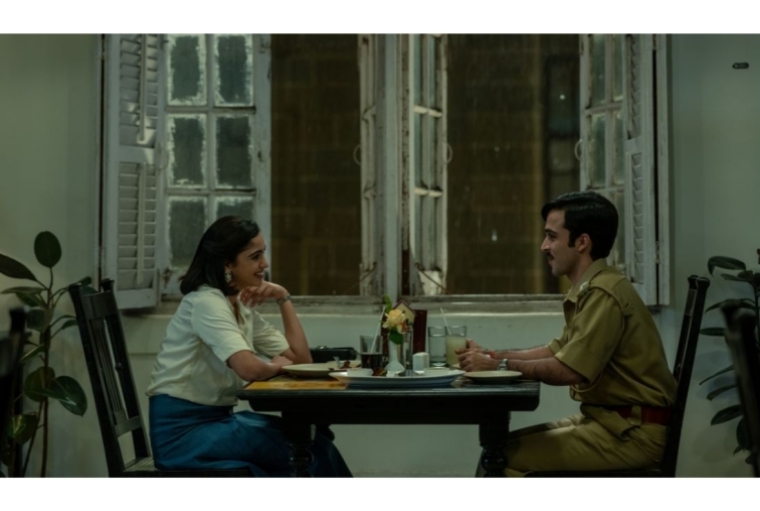
The way an actor prepares for a role is often one of the most discussed aspects of a film project. What is your method? Has the preparation process changed for the actor who played Faraaz and Siachen, compared to the one who put on a moustache for the role of Sunil Gupta?
It's grown. Of course, I think it has, and I would hope so, like with every good and credible artist. I believe that every project is a growing opportunity. I would like to believe that it's become a deepening and widening experience. The strength always comes from the story itself, the script itself. There is, of course, a lot of craft and technique involved, including the tools of the actor: the body, the voice, and the ability to access emotions while feeling free and confident. For me, confidence is cumulative. My approach is probably similar each time, though I don't think it’s the same. I can be inspired for different reasons for each role. In this case, the language and the world itself were interesting. Another role might present different challenges, perhaps being more interpretive or script-driven. For example, 'Archan' as a play was driven differently and was physically more demanding to embody the climate and circumstances.
Each role presents its challenges, and I feel empowered by the people around me who support me in this process. I don’t have a particular method, but if I could distil it, I would say it comes down to the idea that 'acting is behaving truthfully under imaginary circumstances.' My quest is to behave in a way that is truthful while recognizing that this exercise is imaginary. I find a lot of support and security in the script and the text. I enjoy interpreting journeys and collaborating with creators who bring their unique visions. Together, we navigate the choices that best serve the story. How can these decisions shape a more compelling narrative? How can they enhance the character's journey? This, for me, is the essence of the method.

Since you're genuinely invested in the character and the story, do you find it difficult to detach yourself after working on something as intense as Black Warrant? The themes are quite disturbing, especially considering the character's turmoil with his family and the demands of his job. Is it challenging to step out of that mindset afterward?
It’s all-consuming. It’s exhausting. I’m not someone who believes too much in getting lost in that way. Part of what I try to dedicate my skill and craft to is to use it in a functional way. It’s a combination of being able to deeply empathize while also understanding what it means not to get lost and consumed. You do get consumed, but how you detach is also part of your job. If you got so carried away, you wouldn’t hear 'action' and 'cut.' You need to be aware of those things. I don’t think that’s the point, but you’re allowed to be vulnerable because you’re given the safety of the job, and the story stays with you. When I’m working on a role, the story lingers in your mind.
The hard part for me is not being in it. The challenge comes when the inertia breaks—when you have a gap in filming and have to come back to it, or after filming when you have to come back to dubbing. It can happen eight months later, and that’s challenging. Revisiting it can be more difficult because you lose a lot of momentum. Otherwise, I think I manage okay. I think it’s important to recognize that we’re doing this together. I don’t want to do things that make it feel solitary; I want the people around me to also enjoy their jobs and contributions, and it should feel like we’re helping one another. It's interdependence.
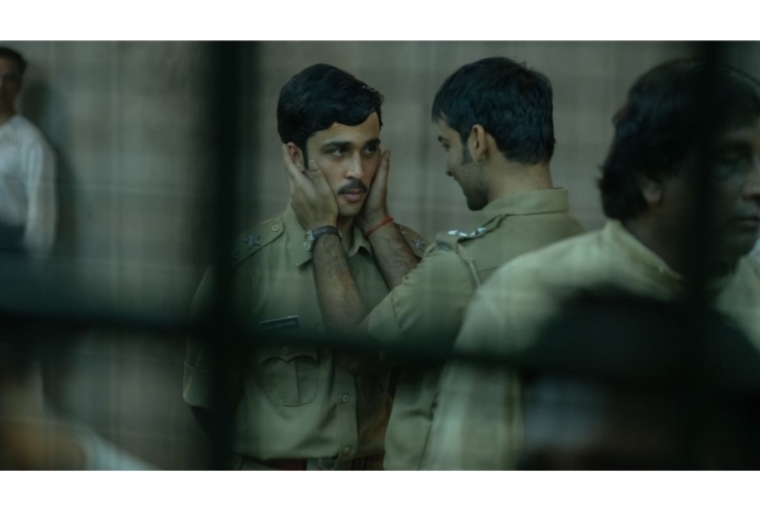
That’s true considering filmmaking is the biggest example of teamwork because there are just so many people involved.
We should support everyone and be more mindful of how our actions can make their lives a little easier. In turn, this will encourage them to help us as well.
You are at a crucial point in your career where you can begin to take initiative and shape your path according to your desires. But the question is, do you have a clear vision of what you want?
I'm very wary. I've become more and more cautious about goal-oriented pursuits, which creates a definitive point that I'm chasing. What I'm beginning to really enjoy is choice. Like you said, choice is important. We all have choices. We may not like the choices, but that's a separate conversation. I don’t know if I can choose impact; that’s something I could not have controlled with how Black Warrant has been received. However, I chose to believe that there are filmmakers and a group of people who are genuinely dedicated to their work, exhibiting a strong work ethic and drive. Their intention is to serve in a sense, and I'm excited to find more of that. I’ve been fortunate to find people like that. Yes, I worked with Hansal sir first and now with Vikramaditya sir but even in between the plays and other web series I've worked on, I have to say, whether they all work or not, and to what degree is not up to me. But I’ve managed to find people who are motivated by honesty, and I deeply value that.
I value an honest attempt. It may not always land, but an honest attempt is probably more valuable to me than the strategic importance of impact or a premeditated impact, which I think is difficult.
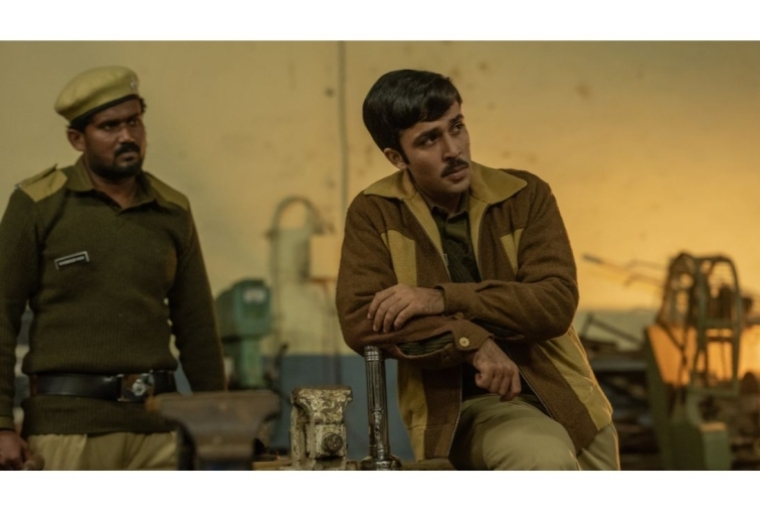
But do you have a dream team?
I find it difficult to answer because it’s contextual. For example, I respect and look up to many filmmakers and actors, and I would love to work with so many of them. However, it depends on the context and the story they are working on at the time. I would love to work with a whole host of people, but it really depends on whether those stories manifest. Like with Hansal sir, for instance, I knew of him, but I didn't have a specific list. I felt the need to make something happen with him, and it did. I'm actually proud that it happened organically.
Words Hansika Lohani
Date 20.01.2025